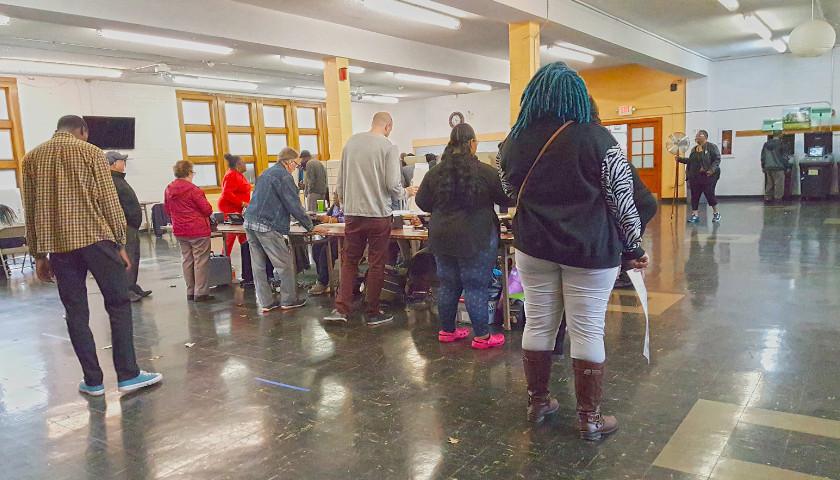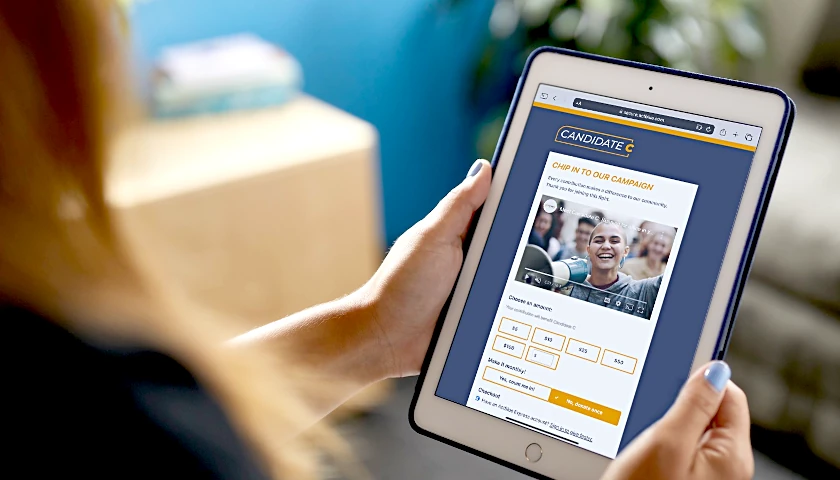Live from Music Row Thursday morning on The Tennessee Star Report with Michael Patrick Leahy – broadcast on Nashville’s Talk Radio 98.3 and 1510 WLAC weekdays from 5:00 a.m. to 8:00 a.m. – host Leahy welcomed Hans von Spakovsky of the Heritage Foundation to the newsmaker line to discuss state-by-state election integrity ratings, standards and best practices, and the problem of conducting an election exclusively with paper ballots.
Leahy: We’re joined now on our newsmaker line by our very good friend Hans Von Spakovsky. He’s the manager of the Election Law Reform Initiative of The Heritage Foundation and a senior legal fellow with the Edwin Meese Center for Legal and Judicial Studies, and all-around good guy. Hans, welcome to The Tennessee Star Report.
Spakovsky: Michael, thanks for having me on.
Leahy: It’s great to have you on. And, of course, your friend Roger Simon is here in-studio with us as well. The first thing to get to is the rating of The Heritage Foundation that ranked Tennessee as the best in the nation in an election integrity scorecard. Yay, for us, I guess. (Simon chuckles)
Spakovsky: Well, that’s true. And by the way, Roger, it’s great to be talking to you again. More than a year and a half ago, shortly after the 2020 election, we came up with the idea of creating a scorecard, because I was getting calls from people all over the country saying, well, how good is our state? How bad is our state?
So what we did is we came up with a set of best-practices standards for running an election. And it covers everything from whether you require an ID to vote, to how you handle absentee ballots, to what you do to clean up and maintain the accuracy of your voter registration rolls.
And then we undertook a project, that took a year, to analyze the laws of all 50 states, comparing them to the best standards, including the District of Columbia since they have votes in the presidential election. And we came up with our scorecards that are available on our website. You click on any state, and it will give you the ratings of it.
Simon: I don’t know Hans, maybe you should have recused yourself, because you went to Vanderbilt.
Spakovsky: (Chuckles) That is true. I greatly enjoyed my time in Nashville, I can tell you. But Tennessee moved up. And by the way, a perfect score is 100. And while Tennessee is now at the top of the list, it didn’t get a perfect score. Its score is an 84 out of 100 points.
So what that tells you is that there’s still room for improvement. But what Tennessee did that moved it up five points was, the legislature passed a big bill to improve the maintenance of your statewide voter registration roll.
What they said was election officials could now use a whole variety of other databases to figure out if people … (Phone disconnects)
Leahy: Hans, are you back with us?
Spakovsky: I am back.
Leahy: I’ve been doing this show for four and a half years. that’s the first time in four and a half years that the power in the entire station has gone out. And it must be because you are our guest, talking election integrity.
Simon: I want to assure you that I didn’t drive to the studio this morning in an electric car. (Laughter)
Spakovsky: Well, that is probably what it is. Because, you know, the ACLU and others like that hate me because I’m actually in favor of common-sense things like voter ID. So they may have cut the power to the station.
Leahy: Let me ask you the big question here, Hans. In 2020, there were all sorts of questions about the integrity of the election. We’re still working on those, debating those.
It’s very contentious. What’s your sense as to the integrity of the 2022 election? Is it going to be better, the same, or worse than 2020?
Spakovsky: In a lot of places it’s going to be better. And remember, this depends on the state you’re in, because the rules governing elections vary from state to state, and many states improve the integrity of their elections. I mean, just a quick example. Look, Georgia and Texas had good voter ID laws in place, but they only applied to in-person voting.
And what did their reforms do? They extended their ID laws to absentee ballots. And that’s a necessary requirement when you consider how much that has expanded, particularly in the 2020 election.
So things have gotten better in many states. There are other states where they’ve made no improvement, and they were bad to start with. I mean, if you look at our rating system, the worst states in the country are places like California, New York, Hawaii, and Nevada.
Leahy: Yeah – on your rankings of worst states, one state that concerns me is – I’m not concerned about California or New York as much, because …
Simon: You know how they will vote.
Leahy: Because you know how they’re going to vote. But Nevada is of your worst-ranked states, and Nevada is very important because there’s a Senate race right now where it’s held by a Democrat, and the challenger, Adam Laxalt, has a really good chance to win. Do you think that election integrity will be something that impacts the outcome of the general election in November for the Senate seat in Nevada?
Spakovsky: It could if the margin of victory is really narrow. And anybody who doubts that, about two years ago, there was a video done by a great organization. I’m on the board of the Public Interest Legal Foundation, where they went out to Nevada with a camera crew and they started visiting the registered addresses of voters who had voted in the election. And casinos, head shops, vacant lots, et cetera.
Simon: Hardware stores and empty buildings.
Leahy: So Nevada is an area where journalistically we really ought to be focused over the next couple of months.
Spakovsky: Yes. No, I agree with that, and I think that’s something that ought to be done.
Leahy: Exactly. After 2022, what do you see as the big challenges to making the 2024 election for president an election that people will believe is fair and honest?
Spakovsky: Well, we have to continue to push in the state legislatures to make improvements. As I said, a lot of states have passed things, other states have not. There needs to be an intense lobbying effort in the states. But look, the other big thing that we have to keep up is preventing any kind of bad legislation from coming out of Congress.
Hopefully, that won’t be a problem because as you know, the predictions are that the House is going to get taken over by Republicans. That was a problem with Nancy Pelosi controlling the House.
They tried to push through several federal bills that would have taken over election laws in the states across the country and put in all these kinds of bad rules, including banning voter ID, that got filibustered in the Senate, thank goodness. We’ve got to make sure it stays that way.
Leahy: Roger Simon has a question for you.
Simon: Hans, what about the role of machines? I’m sure, being a scholar of this stuff, well aware, even most citizens should be aware, that the French don’t use machines anymore and have gone completely to paper ballots because of the suspiciousness of the ability to fool with the high-tech machines. What do you think about them in this country? A lot of people are worried about it.
Spakovsky: Yes. I understand they’re worried, but going to entirely paper ballots, particularly in big jurisdictions, would be very difficult. What I’ve always said to folks is the best system is a hybrid system.
And that means you vote on a paper ballot, what they call opti-scan ballots, that’s then scanned by a computer and counted. And the advantage of that is if any questions arise about the computer scanner and the computer tabulation, guess what?
You’ve got the paper ballots and you can hand-count them, which unfortunately takes a very long time. That way you’ve got an audit trail. So you’ve got a backup, but you’ve got the speed of a computer counting votes, and I think that actually is the best kind of system.
Listen to the interview:
– – –
Tune in weekdays from 5:00 – 8:00 a.m. to The Tennessee Star Report with Michael Patrick Leahy on Talk Radio 98.3 FM WLAC 1510. Listen online at iHeart Radio.
Photo “Hans von Spakovsky” by The Heritage Foundation.






Good luck w.that
Was in Rep Terry’s district, not one response ever on this issue
Same from State Sen Reeves, nada
In the seventies I lived in Nevada, there used to be a “none of these candidates ” option, until “none…” won
State politicians freaked and removed that option
I have been asking my rep for this very hybrid system for years. When is it going to happen?